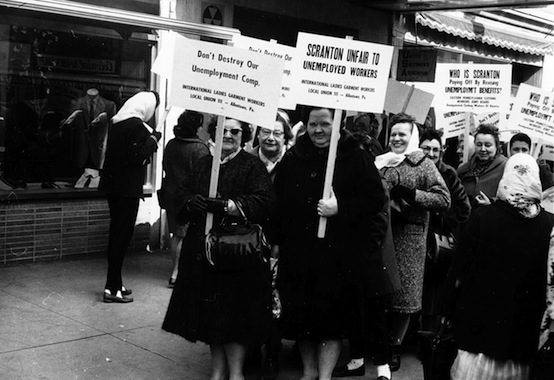North Carolina’s Lessons for Unemployment and the GOP

Despite the recent words of Paul Ryan, Marco Rubio, and Mike Lee, the GOP currently has little credibility when it comes to improving the lot of the poor and downtrodden. In the last election, Mitt Romney lost four to one among voters whose most important perceived candidate quality was who “cares about people like me.” This represented a fifth of the electorate, a share that may only increase as our economy limps through a tepid recovery. By transforming “limited government” from the means to an end to an end itself, Republicans lost the vocabulary of human flourishing—and what stale budget talk and appeals to principles remain won’t rebuild conservatives’ appeal to the economically anxious.
The recent debate over extending unemployment benefits is a case in point. Republicans mostly dropped the argument about the potential trade-offs between helping individuals and serving the long-term health of our economy—a welcome development given the depressing statistics economists like AEI scholar Michael Strain have compiled: of all unemployed workers, over a third have been unemployed for more than 27 weeks, double the share we saw during the recession of the early 2000s. Today there are approximately three unemployed workers for every available job opening. No wonder more than 350,000 workers opted to leave the workforce, making today’s labor force participation rate the lowest since April of 1978.
Then the debate moved to the cost—$18 billion, or approximately one-half of one percent of overall federal spending in 2013, then to procedural objections and the perfidy of Harry Reid. Yet at no point has a substantial majority of Republicans rallied behind a set of policies that would address the plight of the long-term unemployed.
Admittedly, part of the problem is the inherent challenge for a party out of power to rally around a substantially new, coherent agenda. Ryan and company are helping to fill that vacuum with their own policy solutions, and one can imagine that with a Republican in the White House, a similar agenda could get passed.
But the experience of my home state of North Carolina should give one pause. With control of both houses in the General Assembly and the Governor’s Mansion, the GOP passed many far-reaching reforms ranging from the tax code to education, none of which grappled with the structural problems facing the state’s economy. Rhetorically, GOP leaders and their surrogates stuck to abstract financing issues and small government talk. They rarely defended policies by appealing to a vision of the good life for North Carolinians that resonated with anyone outside the conservative fold.
Their strategy hasn’t panned out. The unemployment benefits reform was already controversial, since state leaders could have continued the benefits for the current long-term unemployed even as they reaped the same fiscal benefits had they just been willing to seek a mere six-month delay and a waiver from the Department of Labor. The unemployment rate has decreased six months later, but the drop appears to stem more from marginally-attached workers leaving the workforce than from unemployed workers finding jobs. Voters aren’t pleased. Governor McCrory hasn’t recovered in the polls, and likely GOP Senate nominee Thom Tillis is trailing Senator Kay Hagan even as President Obama’s unfavorability rating sits at a solid 55 percent.
Fiscal responsibility is important, but small government talk alone won’t cut it. Like it or not, the federal and state governments can target some of the root causes of poverty and economic hardship. Republicans need to start taking cues from Ryan, Rubio, and Lee to thoughtfully confront the challenges our society faces today: the decline of institutions like the family and local communities and the continuing struggles of segments of the workforce still grappling with our post-manufacturing age. Addressing the needs of the long-term unemployed would be a good place to start—lest some Congressional Republicans find themselves out of a job this November.
Comments